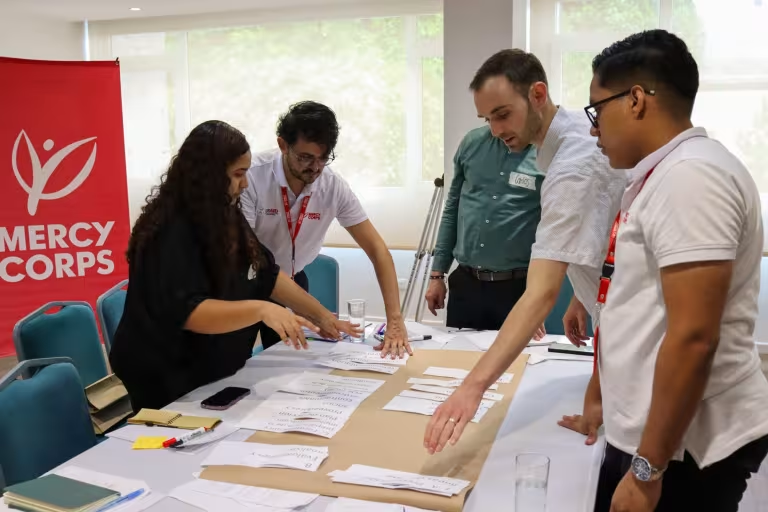A Summer of Research and Learning with Mercy Corps Colombia
Interning with Mercy Corps in Colombia this summer was a unique opportunity to work with leaders of a large-scale assistance program as they sought to adapt and continue their humanitarian work amid rapidly-shifting contexts. While working in Colombia for 10 weeks, I appreciated how directly I could apply the skills I had developed during my first year of the MPA and also further refine the issues I wanted to focus on during my final year.
As a graduate intern, I worked with the Mercy Corps-led VenEsperanza humanitarian consortium based in Bogotá. Prior to entering SPIA, I had worked at the USAID Bureau for Humanitarian Assistance, and I knew that I wanted a summer internship experience that would allow me to work with an innovative humanitarian organization and continue developing ideas for how to design and implement effective programs.
VenEsperanza was one of the few projects to resume its U.S.-funded humanitarian assistance at the start of the summer of 2025, following months of suspension. In doing so, it continued building upon the vital work it has conducted since 2019 to provide Venezuelan refugees and migrants in Colombia with urgently-needed assistance. As the VenEsperanza team traveled to regions across Colombia to relaunch its programs, I was grateful for the SPIA summer internship funding that made it possible for me to travel with VenEsperanza’s specialists to the Norte de Santander, Antioquia, and Bolívar regions to assist in training events.

Serving for most of the summer on VenEsperanza’s Research and Learning team, I led the completion of “Rutas de Esperanza,” a mixed-methods research study assessing the outcomes of VenEsperanza's entrepreneurship, employability, and savings groups livelihood initiatives aimed at enabling participants to achieve long-term sustainable income and food security.
After coding and analyzing survey data from over 1,000 participants using quantitative skills I had developed in the MPA program, I led our team in conducting in-depth interviews with 24 participants across diverse regions of Colombia. Through these conversations, participants emphasized how their engagement in livelihoods initiatives, along with unconditional food assistance, enabled them to improve their families’ nutritional outcomes, play a more active role in their family’s financial decision making, and launch small businesses that integrated them into their host communities. These insights allowed us to deliver operational and strategic recommendations to Mercy Corps leadership to further enhance livelihoods programming. Throughout my summer in Colombia, I had also been grateful for the additional summer language funding that SPIA provided for me to continue perfecting my Spanish, and which allowed me to feel comfortable with report writing and presentations.
Reflecting on the summer, I am deeply grateful for the members of the SPIA community who are eager to engage and collaborate on humanitarian issues. In Colombia, Jennifer Daum, the Mercy Corps country director and a former MPA graduate, and Diego Prado, the director of the VenEsperanza consortium, were dedicated to mentoring and discussing complex issues they dealt with as leaders in the humanitarian field. Back on campus, the MPA students who worked on humanitarian issues over the summer have created a group that meets weekly to discuss our experiences and the issues we want to continue working on throughout our careers.


